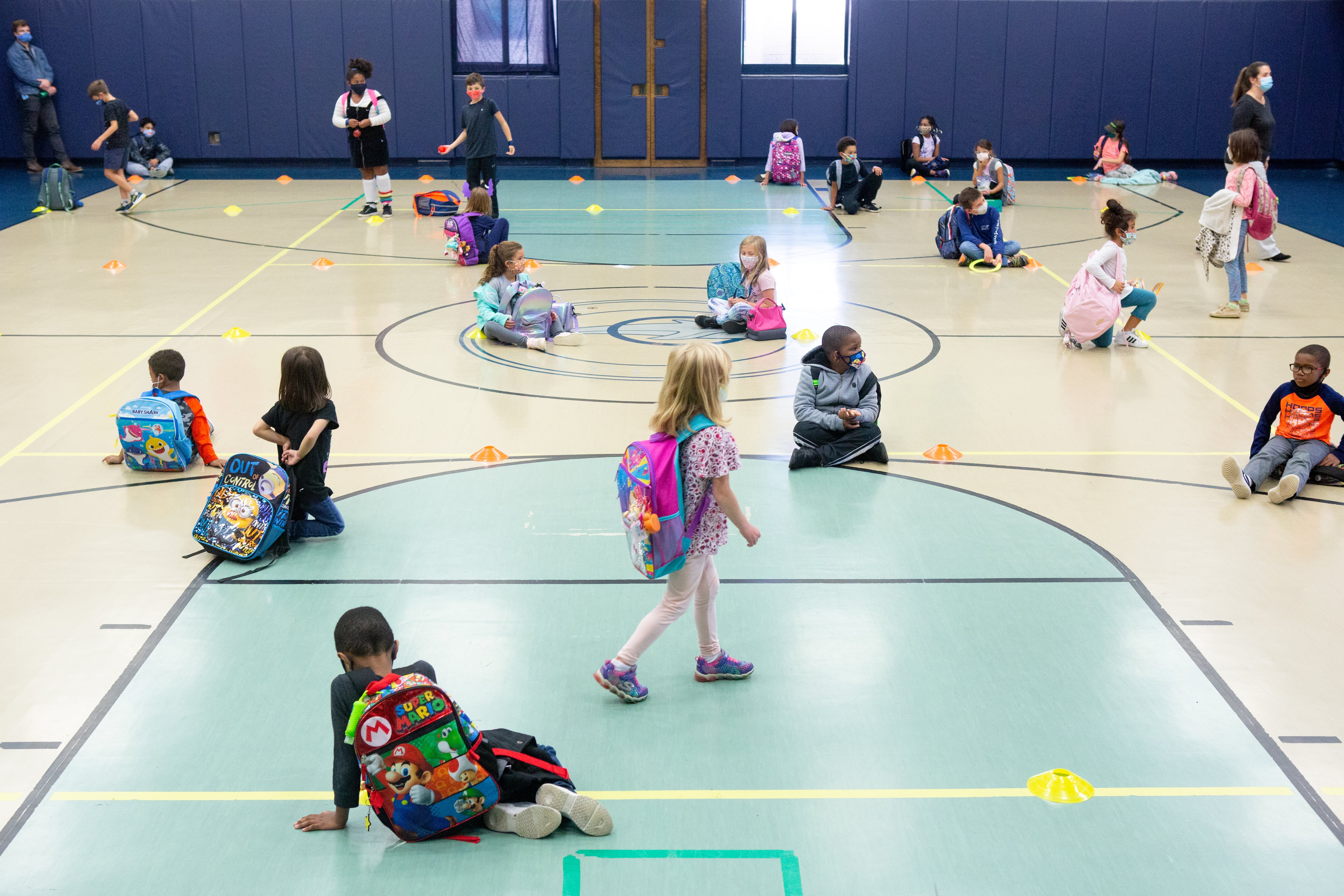Philadelphia officials announced Thursday that the city would open 31 recreation centers on Sept. 8 where students can be supervised during the virtual school day and receive help accessing the internet.
The 31 sites, run by the city’s Office of Children and Families, can accommodate about 800 students. Deputy Mayor Cynthia Figueroa said that this is just a “first phase,” and that officials will open more sites on a “rolling basis” depending on demand. The new locations may include public libraries and Philadelphia Housing Authority community centers.
The centers, each of which will accommodate about 22 children, are for students entering kindergarten up to sixth grade whose caregivers work outside the home and cannot afford child care, and/or have no reliable internet service at home.
These are “for those who have absolutely no other options available,” said Figueroa. She noted that the state is continuing its subsidized child care programs and said families who currently participate should “not pull their child from that arrangement.”
Figueroa said that families can apply starting Monday, Aug. 24, and as the enrollment process proceeds officials will consider where to open new sites, with a target date for “phase two” of Sept. 21.
The centers will be staffed by parks and recreation and library employees, as well as personnel from the city’s “out of school time” office that runs after-school, summer, and weekend programming. Some may also come from private community partner organizations. All will be trained and have appropriate child abuse clearances as well as refreshers around being “mandated reporters” for child abuse, Figueroa said.
She added: “These are not schools, we are not providing any special instruction.” The personnel in the centers are “not teachers,” she said, and if students have special needs the city is working with the district to assist them.
Officials are still talking to the union that represents the recreation department’s employees about what’s expected of them at the centers.
At the centers, all social distancing guidelines will be followed, she said; some of the larger centers, those with multiple rooms and bathrooms, may be able to accommodate two cohorts of children.
Sarah Peterson, spokesperson for the city’s Department of Children and Families, said via email that the centers will be required to follow the Philadelphia Department of Public Health’s school reopening guidance regarding intensified cleaning, social distancing, maintaining student cohorts, virus screenings, and mask-wearing.
“Masks will be mandatory. In the event that a student arrives without a mask, one will be given to them,” Peterson said.
Parents will have to find their own transportation to the centers, Figueroa said, as school buses will not be running. Centers will be open to all students, not just those who attend district schools. Most charter schools are also teaching remotely, but Catholic schools and some independent schools are resuming in-person instruction.
Superintendent William Hite said in an earlier press conference that he thinks many more centers will be necessary. Eventually, parts of some school buildings may become access centers, he said. School buildings are being prepared for a potential return to some in-person instruction by Nov. 17 and are currently undergoing deep cleaning and ventilation testing.
City Health Commissioner Thomas Farley was asked why schools are not opening if children and adults are going to be in congregating at the access centers. Farley noted that he had approved the school district’s initial “hybrid” plan in which most students would attend schools two days a week based on trends of COVID transmission in the city.
In his regular COVID update, he said that daily case counts continued to go down, and the transmission rate is now at 3.0, below the 5.0 threshold considered safe for some in-person schooling.
The district reversed its hybrid plan and pivoted to all-remote learning to start the school year after an outcry by teachers, principals and parents at its July Board of Education meeting.
City and district officials have estimated that as many as 35,000 households lack reliable internet access, and earlier this month announced a $17 million, two-year initiative called PHLConnectED to expand internet availability, The city and district are conducting extensive outreach, and so far 1,931 households have been confirmed to need internet access, Hite said at a Board of Education meeting Thursday night. The city’s Chief Information Officer Mark Wheeler said more details will be shared next week about PHLConnectED.





